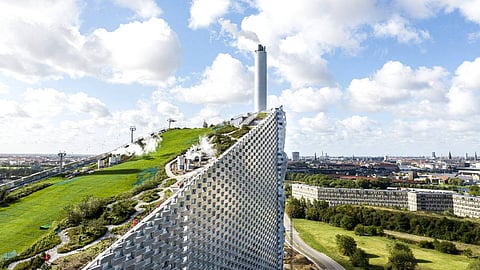Denmark to the world’s rescue
Solutions are available to help the world combat the negative effects of air pollution, says the Danish not-for-profit, public-private partnership State of Green. More than nine in every 10 people on earth live in places where air quality levels exceed the limits recommended by the World Health Organisation (WHO). The major outdoor pollution sources include vehicles, power generation, heating, agriculture, shipping and industrial production.
With ambient air pollution having become a major health challenge that causes 4.2 million premature deaths every year due to strokes, heart diseases, lung cancer and chronic respiratory diseases all over the world, is a rising global health challenge.
Says Danish environment minister Lea Wermelin: “In Denmark, we have worked on improving air quality since the 1970s and we have brought down air pollution from industrial and energy production to a low level compared to global standards. Beyond the health and environmental benefits to the Danish society, this development has also fostered a cleantech sector that is leading in developing, supplying and utilising solutions to reduce air pollution.”
State of Green works to foster relations with international stakeholders interested in discussing their challenges and check out relevant Danish competencies and technologies that can enable their green transition. India has an added advantage: it has signed a Memorandum of Understanding (MoU) with Denmark just two months ago for cooperation in in offshore wind, grid flexibility and variability in renewable energy production.
Air pollution is often seen in relation to the world’s cities and the increasing urbanisation everywhere; but Danish cities have, for many decades, been frontrunners in addressing urban air pollution. Some of the most effective solutions have been the implementation of fuel quality and vehicle emission standards, taxation and vehicle access restrictions, retrofitting of vehicles and replacing old wood stoves with new, eco-friendly ones.
Air pollution is, however, not only a city phenomenon, State of Green points out: it originates from almost all types of industries, from agriculture to international shipping.
The second cause, for example, can be tackled to a large extent by following the example of Denmark, which is one of the global leaders in shipping. The European country’s solutions to reduce air pollution from shipping include the installation of exhaust gas cleaning or scrubbing technology on the ships, shifting to electric ferries running on green energy for passenger ferries operating on shorter distances and providing electrical power from shore to cruise ships at berth, making it possible to turn the ship’s auxiliary engines off. Denmark now has the world’s largest battery-powered passenger ferries.
Such green technologies, designed specifically for ships and the harsh conditions in which they operate, promise to provide a solution to combat air pollution from the maritime industry. With approximately 93,000 ships sailing the oceans worldwide - and this number expected to increase along with the continued demand for international trade – these solutions are expected to make a significant improvement in air quality by reducing the large number of harmful substances emitted by so many vessels.
With agriculture being India’s largest contributor, the world leader in environment-friendly solutions is expected to come up with a solution there, too.

